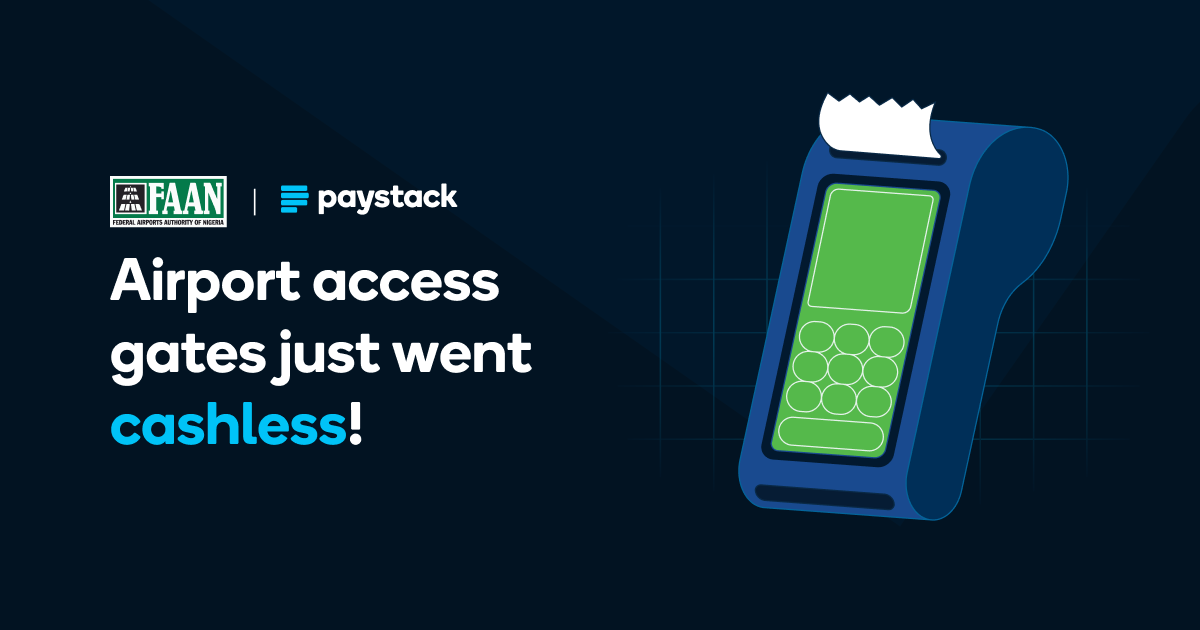Paystack and the Federal Airports Authority of Nigeria (FAAN) recently launched a new NFC card system, that lets drivers pay with a simple tap at Lagos and Abuja airport gates.
The partnership brings contactless payments to airport entry points through the FAAN Prepaid NFC Card. Drivers can now skip cash transactions and long queues by tapping their cards on Paystack-powered terminals. The system processes payments instantly and opens gates automatically.
FAAN’s Digital Push Tackles Cash Problems
Cash payments at Nigerian airports have created bottlenecks for years. Long queues form at access gates as drivers fumble for exact change or wait for attendants to process transactions manually. Paystack designed their system to eliminate these delays entirely.
The solution addresses FAAN’s broader goal of going cashless across all operations. In June 2025, FAAN Managing Director Olubunmi Kuku announced plans to automate parking, toll payments, and lease agreements as part of a comprehensive digital strategy. Only 8% of FAAN’s revenue currently comes from non-aeronautical sources, a gap the authority hopes to bridge through improved digital services.
FAAN has branded this initiative “Operation Go Cashless” and plans to expand the system nationwide before the end of 2025.
How the NFC Payment System Works
Getting started takes five simple steps. Drivers can buy FAAN Prepaid NFC cards at any terminal in Lagos or Abuja airports. Card activation happens online at www.gocashless.faan.gov.ng or by scanning a QR code printed on each card.
Users create accounts with their name and phone number, then verify through an OTP message. The system generates a virtual account number for funding wallets. Drivers must transfer at least ₦1,000 to activate their cards and register them on the dashboard.
At airport gates, the process becomes even simpler. Drivers approach Paystack terminals that automatically detect vehicle types and display appropriate fees on screen. A quick tap of the NFC card processes payment instantly without requiring PIN entry. The gate opens immediately, and drivers proceed without stopping.
Paystack handles all backend operations including real-time transaction processing, security encryption, and system scaling for peak travel periods. The company ensures wallet balances stay insured and maintains terminals designed for high-volume traffic.
Paystack Expands Infrastructure Partnership Strategy
The fintech company has built payment systems for various government agencies and public services across Nigeria.
The airport partnership showcases Paystack’s ability to handle complex, high-volume payment scenarios. Airport gates must process hundreds of vehicles daily during peak hours while maintaining speed and reliability. Success here could open doors to similar partnerships with toll roads, parking facilities, and other transportation hubs.
Paystack provides comprehensive support including 24/7 customer service, technical maintenance, and real-time monitoring of all transactions. The company’s infrastructure scales automatically during busy travel periods like holidays and major events.
What This Means for Airport Users
Regular airport users will notice immediate improvements in entry speed and convenience. No more searching for exact change or waiting behind slow-paying vehicles. The tap-to-pay system processes transactions in under three seconds.
Business travelers and taxi drivers who visit airports frequently can preload cards with sufficient funds for multiple trips. The system tracks spending history and provides digital receipts through the online dashboard.
Airport staff can focus on security and traffic management instead of handling cash transactions. This should improve overall service quality and reduce corruption opportunities that cash systems sometimes create.
The contactless system also offers better hygiene compared to cash handling, which became more important during the pandemic era.
Impact on Nigeria’s Fintech Sector
The success of this partnership could accelerate similar public-private fintech collaborations across Nigeria. Government agencies managing toll roads, parking systems, and public transportation are likely watching results closely.
International fintech companies may view Nigeria’s infrastructure payment market as attractive for investment and partnerships. The airport system demonstrates that Nigerian consumers and businesses are ready for advanced payment technologies.
Success metrics will include transaction volume growth, user adoption rates, and reduction in gate processing times. These numbers will influence whether other African countries adopt similar airport payment systems.
The partnership also validates Nigeria’s position as a fintech innovation hub in Africa, potentially attracting more international payment companies to establish local operations.















